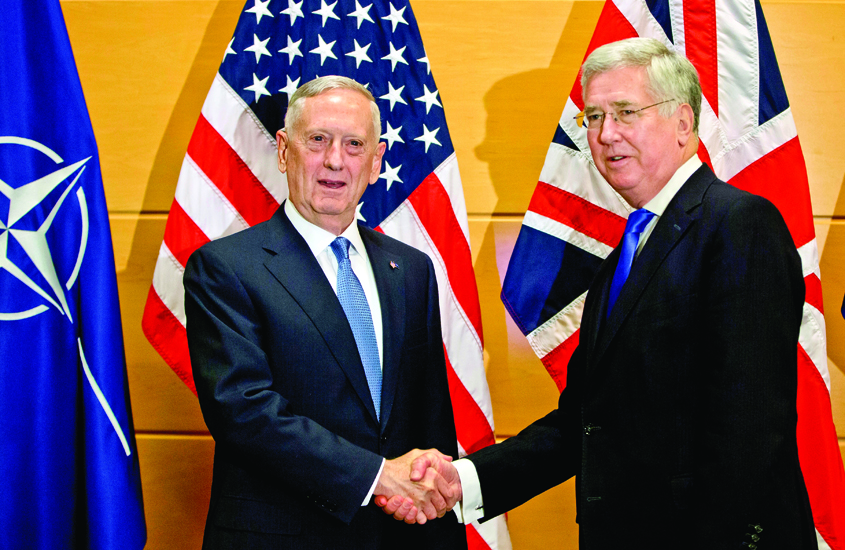The International Institute for Strategic Studies’ (IISS) annual assessment revealed that only three of NATO’s member nations met the 2% of GDP defence-spending target in 2016. Greece committed 2.4%; Estonia, which has a long history of being dominated by Russia, committed 2.2%; while Poland, which also feels vulnerable to Russia, committed 2.1%. UK came in at 1.98%, a shortfall of £380million.
This figure of 2% has become a hot potato in recent political debate and campaigns about defence and security; IISS asks how the 2% is accounted and how good value is measured. They point out that there is no uniformity across European countries in what makes up a defence budget. NATO defines defence expenditure as payments made by a national government, specifically to meet the needs of all its armed forces or those of allies plus any other forces trained in military tactics. Also included are peacekeeping and humanitarian operations, pensions, research and development costs and financial assistance by one allied country to another. IISS also presents the conundrum of variable GDP numbers. Where does the GDP figure from? The IMF? The World Bank? The European Commission or the Organisation for Economic Co-operation and Development? Additionally, exchange rate calculations can impact on the result of the GDP share of a country. Although 2016 saw defence spending increase by 0.3% across European NATO members, this was still below the cumulative GDP growth (1.8%) of European NATO member states in 2016. But as Deputy UK ambassador to NATO, Paul Johnston, said, a more effective Alliance is not only about money. It’s also about continuing to modernise structures and ways of working to ensure the alliance is capable of addressing simultaneously the complex and challenging world around us and the scourge of terrorism.
UK Defence Secretary Sir Michael Fallon told US Defense Secretary James Mattis that NATO must become more agile and share burdens if it is to tackle the growing threats of cyber and terrorism. He called for other states to spend both 2% overall and to spend 20% of that on new equipment.

James Gray, Conservative MP and member of the Commons Defence Committee, believes that UK must pay attention to President Donald Trump’s reluctance to continue subsidising the defence of Europe; UK and NATO members must all now step up to the mark and pay for their own defence. Gray insists that the reality is that 2% is not nearly enough, it should be 3-4% if UK is to defend its shores and keep the US on board, without which NATO and any pretence at self-defence is finished.
Under discussion at the NATO Defence Ministerial in Brussels was UK’s leadership in NATO. In January, UK forces took command of NATO’s Response Force and the flagship Very High Readiness Joint Task Force and the Royal Air Force took the lead in the air component of the NATO Response Force. UK’s Enhanced Forward Presence deployment to Estonia is gathering momentum alongside Estonian, French and Danish troops. NATO defence leaders are also discussing protecting NATO’s southern border (Turkey with Syria). In a move to strengthen NATO’s deterrence and defence posture, European NATO allies have agreed to jointly buy planes and submarines and possibly open a new command headquarters for elite troops. France has opened its airspace to allow Belgian and Dutch jets to fly through in case of a conflict and Germany agreed to a larger division of several thousand troops under German leadership. In response to Trump’s cautions about an obsolete NATO this might show General Mattis their intention to be less reliant on US support.
General Mattis confirmed the alliance is strong and unified; he expressed confidence about future defence commitments. NATO was conceived to protect against the Stalinist communist bloc, which is irrelevant in today’s geopolitics. Somewhat in response to Donald Trump’s influence, NATO is coming out of its recent inertia. After the unintended consequences of Afghanistan, Iraq, Libya and Syria perhaps NATO will reinvent itself as part of a grand coalition against Islamic terror.

